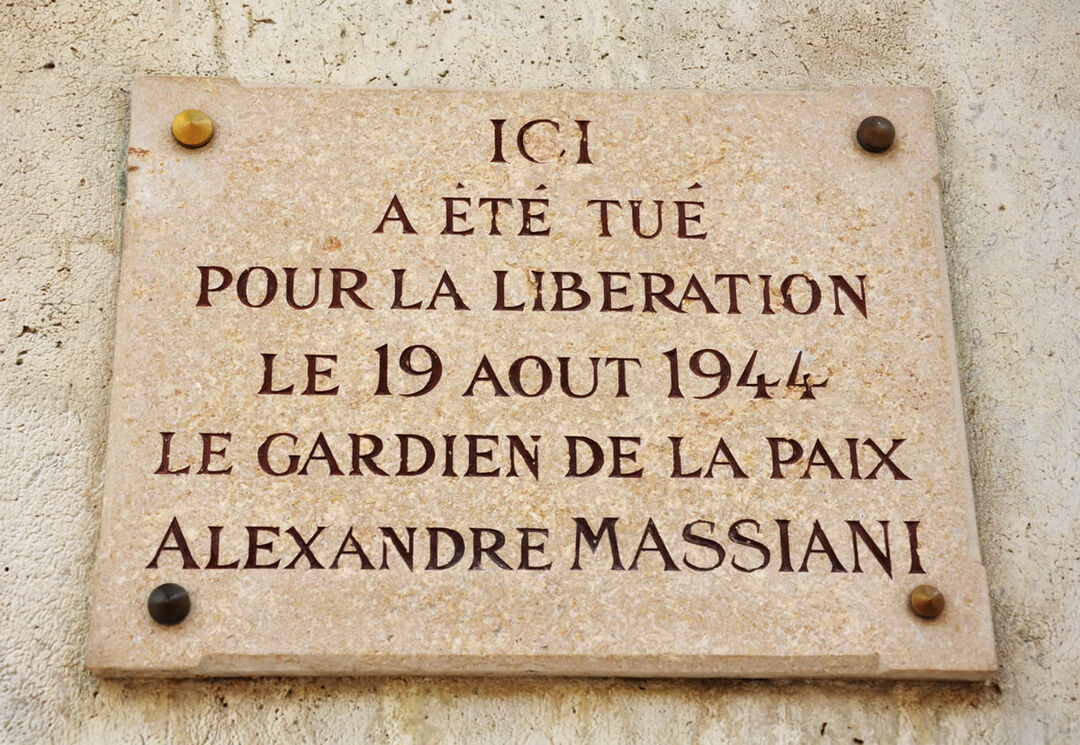Liberation of Paris (1944)
Miscellanea / / July 04, 2021
By Guillem Alsina González, in Jul. 2018
 It is still curious that liberating Paris was something very secondary and even unwanted for the allied forces, which were forced to act by the popular revolt and the subsequent intervention of the French troops so as not to leave the Gallic capital abandoned to its fate before some German commanders who had the order to destroy it.
It is still curious that liberating Paris was something very secondary and even unwanted for the allied forces, which were forced to act by the popular revolt and the subsequent intervention of the French troops so as not to leave the Gallic capital abandoned to its fate before some German commanders who had the order to destroy it.
Paris was not a target of the allied troops advancing towards Germany because they preferred that the German commanders were in charge of feeding the city and take charge of controlling their security, amusing troops that, in this way, would not face the allies at the front, entertained in an objective that had nothing of strategic.
I would not have been the only one territory occupied by the Third Reich that remained in its hands at the end of the war; Denmark and Norway surrendered without there having been any combat between allied and Axis troops (in Norway they did occur when it was occupied, but it was not liberated, but the troops stationed there complied with the surrender order).
The strategy Allied after the Normandy landing, and already marked in advance, consisted of "running" as fast as possible towards the Rhine River to enter German territory, advancing in direction to Berlin to force the unconditional surrender of Hitler, whom they hoped to make see that defeat in the war was final, and that his troops could do nothing to avoid it.
Leaving Paris aside meant for the Allied forces not to give time to the Wehrmacht to withdraw from France and rebuild in the defense line Siegfried, who was before the Maginot in response to this.
In addition, feeding the millions of citizens that populated the city and its surroundings would be a logistical headache that, without a doubt, would leave without many resources the front, therefore the allied high command preferred that the German occupiers should take care of the capital.
This, of course, did not please the free French led by de Gaulle, who saw in Paris a symbol.
One has to think that some allies had questioned the role of the so-called Free France on their side, understanding that They also fought against the legitimate France embodied by the Vichy regime, without recognizing the political role of de Gaulle and theirs.
Even when his political role was finally recognized, the same allied commanders discussed his military contribution, judging it in some cases as scarce and of little value, as well as the role that the Resistance played in the operations of all kind.
With Paris liberated and in the hands of those who considered themselves legitimate representatives of France, de Gaulle and his people hoped to change that. perception in many allies, making it easier for them to come to the negotiating table as equals of the British and American powers, as it was in the end.
The Gallic commanders took the example of the Warsaw citizen uprising, and commissioned General Pierre Koenig (French, despite his clear surname Germanic origin) to prepare an insurrection against the occupying troops in the city, calculating that the Allied troops would be forced to to intervene.
Although the movement The Resistance lacked many means such as communications or weapons, he was enthusiastic about the idea and quickly worked on the plan.
On August 13, 1944, the insurrection began in the streets of Paris, with the members of the FFI (French Forces of the Interior) surrounding, isolating and attacking the key points of the German occupation system of the city of light.
The Germans resisted the first attacks, but more to save their lives than out of conviction of being able to maintain the city. Despite the arrival of reinforcements (Hitler had ordered the dispatch of Waffen SS units), all units and troops who had the possibility to evacuate, left Paris, seeing that they could not control the situation, and that this would end their drop.
In these moments the figure of the Swedish consul Raoul Nordling shines, who negotiated a truce between the German forces and the resistant ones, assuring that the Red Cross had access to the prisoners of war, and that the city was not razed in compliance with the orders of Hitler
The Führer had ordered the German commander of the square, Dietrich von Choltitz, the total destruction of the city. Although Hitler had admired Paris since his artistic days (he wanted to be a painter, but as such he was mediocre), he wanted to humiliate the French, destroying all the monuments that stood out in the city, such as the Tower Eiffel.
According to some historians, Nordling would have finished persuading an already doubting Choltitz, who did not want to go down in history as the man who destroyed Paris.
Meanwhile, on the outskirts of the city, General Leclerc received orders from de Gaulle to advance on Paris to liberate it.
The commander-in-chief of Free France thus disobeyed the orders of his superior allies, in a calculated maneuver that took more than politics than military.
Again, and as these forces advance toward the capital, Nordlin interfaces communication between the resistant Gauls and Commander Choltitz, agreeing that there will be a kind of "combat of honor ”so that the Germans do not surrender without a fight, and that after this the German commanders will surrender the square.
On August 23, Free French forces entered Paris, with little resistance from the German side (some scattered sniper, some groups, and some armored vehicle, more like soldiers fighting to keep their lives). However, in the first armored vehicles they are not French ...
Those who arrive at the square in front of the city hall are veteran Spanish Republicans of the Civil War, whose vehicles have been baptized with names of famous battles of the war Spanish.
Shouting "Paris-Berlin-Barcelona-Madrid", the Spanish Republicans dream that, after participating in the contest together with the allies, they will end up penetrating Spain through the Pyrenees to liberate the country from the Franco regime, an ally of the Nazis.
The first French citizens to receive the liberating tanks react between surprised and disappointed that their liberators are not French.
General Eisenhower, commander-in-chief of the Allied troops in Europe, finally surrenders to the evidence and agrees to send troops to the aid of the French and Paris. The dreaded German counterattack did not take place, and Paris would not follow the tragic fate of Warsaw, the capital where the orders of Hitler, devastating it to such an extent that to this day there is no building in the center of the city before 1945, although it was reconstructed.
Photo: Fotolia - lubbas
Themes in Liberation of Paris (1944)
